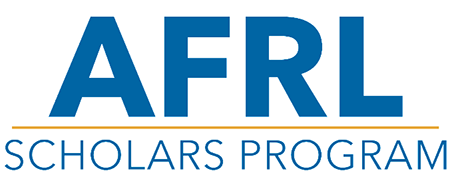Architecture Analytics for Next Generation Space Applications
Overview
Qualifications
Organization
Overview
AFRL/RVS has established a dedicated architecture analytics testbed under the Space Performance Analytics and Computing Environment Research (SPACER) project. The objective of this project is to provide AFRL with an organic, in-house, capability to assess processing options for next generation mission applications. This addresses the increasing challenge of mapping mission requirements to hardware and software implementations for space computing applications. The topic provides several summer research opportunities for students interested in optimization and evaluation of mission application code on space hardware. The selected summer scholar will be given mission application algorithms/code and tasked to examine methods for optimization of the code (parallel constructs, optimized libraries, etc.) and compilation/execution of the software on hardware resources. This will allow for detailed analysis of the application’s performance on different hardware architecture alternatives, providing critical insight into the computational requirements for next generation mission applications. This effort will provide a valuable capability to the Air Force, guiding future science and technology investments decisions
Organization: Scholars
working and learning something new every day
Jesse Keith Mee
Postdoc

Jesse Keith Mee
Jesse K. Mee received his Ph. D. degree (distinction) and his M.S. degree (distinction) in Electrical Engineering (EE) from the University of New Mexico in 2013 and 2010, respectively. His M.S. thesis topic focused on reliability physics of microelectronics for space application. In particular, he concentrated on the reliability degradation phenomenon known as Negative Bias Temperature Instability. Jesse’s doctoral research focused on investigating the time-domain characteristics of monolithic quantum dot passively mode-locked lasers for support of high data-rate transmission architectures. He has been working the Air Force Research Laboratories Space Vehicles Directorate since 2008 and is currently the Deputy Program Manager for the Space Electronic Technology program. Jesse has managed multiple projects leading to the development of novel optical backplane designs for satellite bus architecture, high performance overhead persistent infrared data compression algorithms and versatile satellite power management electronics. His in-house research efforts include development of experiments for radiation effects testing on satellite electronics, design of flight hardware for space experiments and development of a satellite energy assessment model to provide the much needed quantitative analysis which ultimately guides future technology investments. Jesse's other research interests include quantum dot lasers, integrated photonics, and high data-rate transmission architectures.
Qualifications and Eligibility
Below is a summary of the desired background for the position, and any general requirements. Additional detail may be found in the application.
About the partner
Universities Space Research Association (USRA) administers a three-pronged approach to strengthening the science, technology, engineering, and mathematics (STEM) workforce pipeline that includes: the AFRL Scholars Program, AFRL Scholars Professionals, and the University Research and Engagement Program (UREP). This portfolio of enriching programs aligns directly with the Federal STEM Strategy and Department of Defense (DoD) STEM mission for the U.S. Department of the Air Force by offering immersive project-based learning opportunities for students and postdoctoral fellows.

Media Inquiries
afrl.pa.inquiry@us.af.milBusiness Inquiries
afsbirsttr-info@us.af.milHigher Education Inquiries
collaborate@us.af.milCopyright © 2025 The Air Force Research Laboratory. All rights reserved.
